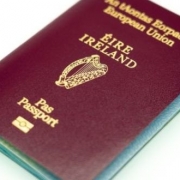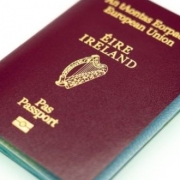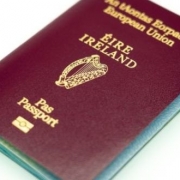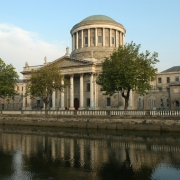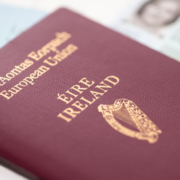The Supreme Court have delivered a very significant judgement in the case of U.M ( a minor) v Minister for Foreign Affairs and Trade and Ors.
U.M is a minor child, born in Ireland on 1st June 2013. UM’s father is a citizen of Afghanistan, who was granted a declaration of refugee status on 14th July 2006, having arrived in Ireland on 22nd April 2005.
UM’s father in 2012 returned to Afghanistan and returned to the State at a time when his Stamp 4 registration had lapsed. His fingerprints were taken at Dublin airport and were found to match with the identity of another person, who had been refused refugee status in the United Kingdom in 2004.
UM’s father subsequently received a decision from the Minister for Justice revoking his refugee status, on the basis that he had returned to Afghanistan and had not given truthful information in his asylum application. UM’s refugee status was revoked pursuant to the Minister’s powers under the now repealed Section 21(1) of the Refugee Act 1996. Under the International Protection Act 2015 revocation of refugee status must take place where various circumstances arise, the Minister no longer has a discretion as she did have under the 1996 Act. The 2015 Act also confirms the revocation will have prospective effect. UM’s father’s refugee status was revoked with effect from 31st August 2013. UM’s father did not appeal the Minister’s decision.
An Irish passport application was submitted for UM in 2014, a decision was made to refuse this application on 11th June 2014 and a request for a review of this decision, affirmed the initial decision by decision dated 17th November 2014.
This decision was challenged by way of Judicial review proceedings and a declaration was sought from the Courts that UM is an Irish citizen.
Section 12 of the Passport Act 2008 outlines that the Minister shall refuse to issue an Irish passport if the Minister is not satisfied that person is an Irish citizen.
Entitlement to Irish citizenship is in turn governed by the Irish Nationality and Citizenship Act1956 (as amended).
Section 6A of this Act outlines that children born in Ireland to parents who are not Irish or British citizens will be entitled to Irish citizenship at birth only if one or either of their parents have at least three years reckonable residence in the island of Ireland in the four year period prior to their birth. Residence in the State for the purpose of study, for the purpose of seeking asylum or residence that is in breach of Section 5(1) of the Immigration Act 2004 (As amended) is not reckonable for this calculation. By default, all other permissions are reckonable.
Within Section 5(1) of the 2004 Act there are specific types of permission which are excluded from the remit of Section 5, including those persons who have a refugee declaration in place.
UM’s case was lost in the High Court. The Minister for Justice argued that for permission to be reckonable for the purpose of Section 6A, it must be lawful and bona fides residence and not obtained by fraud. The applicant argued that the specific residence permissions excluded from reckonable residence are only those specifically excluded under Section 6B. The Applicant argued that his father’s refugee status was revoked from the date of the decision, and this was in fact stated on the decision and was not void from the outset. The Court acknowledged that there had been no wrongdoing on the part of the applicant, a minor child, but did not grant UM the relief of quashing the refusal decision, nor was the court prepared to make a declaration that UM was an Irish citizen.
The case was appealed to the Court of appeal, who issued their decision on 11th June 2020 The Court of Appeal held that there was a key question in the case- is permission obtained fraudulently reckonable or non-reckonable for the purposes of the 1956 Act? The Court found that it was not permissible for the Minister to add in a requirement not found in the legalisation – that for permission to be reckonable it must be lawful and bona fides. For residence not to be reckonable, it must be specifically excluded in the Act. Therefore the Court of Appeal went on to assess whether UM’s father’s permission within the relevant period was in breach of Section 5(1) of the Immigration Act 2004. The Court of Appeal found that the permission of UM’s father during this period was in breach of Section 5(1)- the Court of Appeal found that the Court must look behind the permission held, to the deceit upon which it was grounded.
UM appealed his case to the Supreme Court. The Supreme Court found that the key question is whether UM’s father’s refugee declaration was “in force” for the relevant period.
UM argued that the revocation of his father’s refugee status had prospective effect, from 31st August 2013, as was stated on the decision itself. UM highlighted that the power to revoke refugee status under Section 21(1) of the Refugee Act 1996 was a discretionary power and the Minister had a discretion as to whether to proceed to revoke MM’s refugee status or not in spite of any potential grounds for revocation. The Minister argued that in the same way a declaration of refugee status has a date, the declaration does not confer the refugee status, only recognises its existence, therefore the revocation decision recognises the refugee status never existed in the first place. The Court of Appeal held that “fraud unravels everything”.
The Irish Human Rights and Equality Commission acted as amicus curiae in the Supreme Court proceedings. They argued that any system resulting in nullification of citizenship should include procedural safeguards and an assessment of the impact of such an action of impacted parties. UM also argued that the Minister was required to carry out a proportionately assessment in relation to the decision that would ultimately result in UM’s loss of citizenship. UM further argued that even if the decision of the Minister to revoke MM’s refugee status was retrospective, this did not make his residence in the relevant period in breach of Section 5(1), as the refugee declaration and the permission (Stamp 4) are separate and distinct from one another.
The Supreme Court agreed with the Court of Appeal, that it was not permissible to add a requirement that residence be lawful and bona fides for it to be reckonable.
In examining whether a decision to revoke refugee status renders the declaration void from the outset, the Supreme Court examined various scenarios and held it is difficult to reach a definitive answer and in fact it would depend on the facts leading to revocation and the timing of those events. The Court found that the Minister has a discretion to revoke and does not have to revoke, would therefore result in a conclusion that in most cases the revocation would be from the date of revocation and not from the date the events occurred.
The Court looks at various scenarios and highlights the difficulty in establishing the legal position for persons who obtain derivative rights through the permissions of others, which were fraudulently obtained. The Court highlights difficulty that flows from situations where there was a finding of nullity resulting in a deprivation of citizenship of those claiming a derivative right to citizenship.
In allowing UM’s appeal The Supreme Court concludes:
To all intents and purposes, the declaration of refugee status was valid and effective for all purposes while it remained unrevoked. If the Minister had decided
not to revoke, as it appears could have been the case having regard to the discretion given to the Minister in s. 21 (1), then, that would have meant that the declaration would have remained in force notwithstanding the circumstances in which it was obtained.
Given the status of the declaration until such time as it was revoked I find it difficult to conclude that in holding the declaration was void
ab initio, as was found by the Court of Appeal. It was valid, binding and of effect until revoked
The Court highlighted the difficult position that arises for persons, particularly children, who derive a right from the existence of a right of their parents and are then a risk of losing that right due to cancellation/ revocation of their parents’ right. The Court commented that even if a permission is void ab initio, as was found not to be the case in this instance, there are further questions as to the rights of those who hold derivate rights.
It may well be that the declaration is void ab initio, but there may be a limit to the consequences of such a conclusion. The Court further notes that …invalidity is a relative and not an absolute concept
This is an extremely important decision and as the Supreme Court itself has recognised –“The acquisition or loss of citizenship is a matter of profound significance for the individual concerned”.
Berkeley Solicitors is of the view that this judgement is likely to have a far reaching impact in relation to decisions made to cancel Irish passports for Irish children, following revocation of their parent or parents’ EU fam residence cards.

